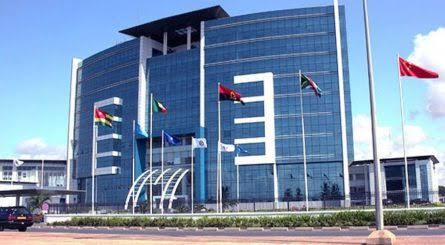Ecobank Transnational Incorporated (ETI) achieved remarkable financial performance in 2024, reporting a significant surge in profitability and growth across key metrics. Profit after tax reached an impressive N735.9 billion, a remarkable 179% increase compared to N263.5 billion in 2023. This substantial growth was fueled by a combination of higher interest and non-interest income, improved loan recoveries, and effective cost management strategies. Gross earnings also saw an exceptional rise, climbing by 131% to N4.22 trillion, further demonstrating the bank’s robust financial performance. This growth was mirrored in the group’s revenue, which jumped by an impressive 133% to N3.11 trillion, showcasing the bank’s successful expansion across its operational landscape. The bank’s strategic focus on operational efficiency and a solid growth trajectory contributed significantly to its exceptional financial outcomes.
ETI’s robust financial performance extended to its balance sheet, with total assets expanding by 67% to reach N43.3 trillion, up from N25.9 trillion in the previous year. This growth was driven by a combination of factors, including increased customer deposits, significant loan growth, and strategic investments in securities. Customer deposits exhibited a strong surge, rising by 66% to N31.6 trillion, indicating growing customer confidence in the bank’s services and its stability. Simultaneously, loans and advances to customers saw a substantial increase of 53%, reaching N15.3 trillion, reflecting the bank’s proactive lending activities to both businesses and individuals across its diverse operational regions. This expansion in lending underscores Ecobank’s commitment to supporting economic activity and empowering individuals and businesses.
The bank’s strengthened financial position was further reflected in the growth of its total equity, which surged by 68% to N2.78 trillion. This increase underscores the bank’s ability to generate and retain earnings, further solidifying its financial stability and resilience. Earnings per share, both basic and diluted, mirrored this upward trend, rising by 166% to 2,019.684 kobo, a testament to the bank’s enhanced profitability and value creation for its shareholders. This exceptional performance reflects the success of the bank’s strategic initiatives, its focus on operational efficiency, and its commitment to delivering strong returns to investors.
A deeper dive into the components of ETI’s financial performance reveals the key drivers of its remarkable growth. Interest income played a significant role, rising by 128% to N2.76 trillion, primarily driven by increased income from loans and advances, alongside income from investment securities. This growth in interest income was partially offset by a decline in other interest income. However, the bank also experienced increased interest expenses, which rose by 123% to N1 trillion, reflecting the rising cost of funds in the prevailing economic environment. Despite this increase in expenses, net interest income still exhibited strong growth, rising by 132% to N1.75 trillion, demonstrating the bank’s ability to manage its interest rate spread effectively.
Non-interest income also contributed significantly to ETI’s overall revenue growth. Fee and commission income saw a remarkable surge of 152%, reaching N879.9 billion, underpinned by increased transaction volumes, wider adoption of digital banking services, and higher account maintenance fees. This growth underscores the bank’s successful efforts in diversifying its revenue streams and capitalizing on the growing demand for digital financial services. While fee and commission expenses also saw a significant increase, the overall growth in non-interest income remained robust, further contributing to the bank’s strong financial performance. Trading income and foreign exchange gains exhibited notable growth, rising by 130% to N538.8 billion, driven by increased foreign exchange transactions and successful management of financial instruments. However, investment activities recorded a loss, impacted by market fluctuations in the value of investment securities.
ETI’s overall operating income, reflecting the combined impact of these factors, experienced a substantial increase of 133% to N3.11 trillion. This impressive growth was partially offset by a rise in operating expenses, which were driven by increases in staff coûts, depreciation, and other operational expenditures. Despite these rising costs, the bank’s overall profitability remained remarkably strong, demonstrating its ability to manage expenses effectively while driving revenue growth. The absence of any net monetary loss from hyperinflationary economies in 2024, compared to a loss in the previous year, further contributed to the bank’s improved financial performance. Beyond its financial results, Ecobank, in partnership with Design Week Lagos, expressed its commitment to fostering the growth of Nigerian brands in the global furniture market, reflecting the bank’s wider role in supporting economic development and promoting local businesses.


